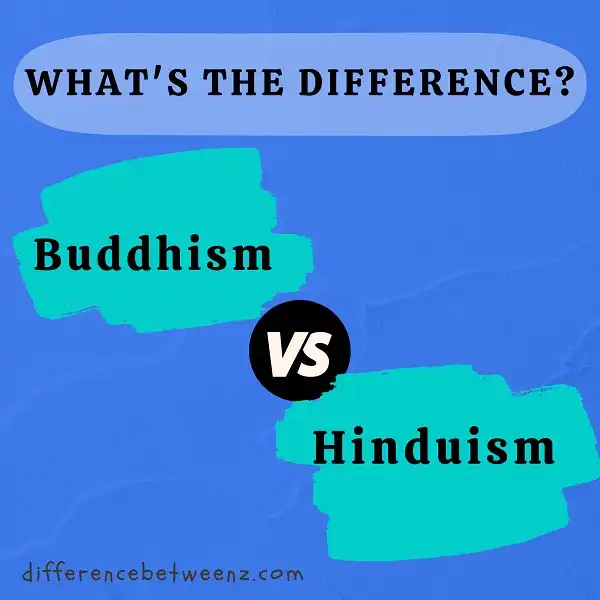Buddhism and Hinduism are two of the world’s most popular religions. Though they share some similarities, they also have some major differences. In this blog post, we’ll take a look at some of the key differences between Buddhism and Hinduism. We’ll start by discussing the concept of reincarnation in both religions. Then, we’ll explore their attitudes toward god. Finally, we’ll look at their views on salvation.
What is Buddhism?
Buddhism is one of the world’s largest religions, with over 500 million followers. It was founded by Siddhartha Gautama, also known as the Buddha, in India over 2,500 years ago. The Buddha taught that the way to end suffering is to live a life of moral discipline, wisdom, and compassion. He also taught that all beings are interconnected and that our actions have an impact on those around us. As a result, Buddhists strive to live in harmony with others and to act with compassion. Buddhism has many different schools and traditions, but all Buddhists share the same core beliefs. These include the Four Noble Truths, the Eightfold Path, and the Three Jewels. Buddhism is a religion that emphasizes personal spiritual development and our ability to end Suffering. As such, it has had a profound impact on cultures around the world.
What is Hinduism?
Hinduism is one of the oldest religions in the world, and it has a rich and complex history. Hindus believe in a supreme being known as Brahman, and they see the entire universe as an expression of Brahman’s energy. Hindus also believe in karma, the idea that our actions have consequences in this life and in future lives. As a result, Hindus strive to live ethically and act selflessly, in order to create positive karma. Hinduism is also distinctive for its emphasis on Dharma, the moral order of the universe. Hindus believe that it is our Dharma to uphold this order, and this involves acting in accordance with our caste and fulfilling our responsibilities to our family and society. Finally, Hinduism teaches that liberation from the cycle of birth and death is possible through spiritual growth and knowledge. As such, Hindus seek to cultivate their inner selves through meditation and other practices.
Difference between Buddhism and Hinduism
Although Buddhism and Hinduism share many common beliefs, there are also some important distinctions between the two religions. For instance, Buddhism teaches that suffering is caused by attachment to worldly things, while Hinduism blames the cycle of reincarnation—or karma—for human anguish. In addition, Buddhists believe in nirvana, a state of complete peace and freedom from suffering, while Hindus believe in moksha, a release from the cycle of rebirth. While both religions emphasize the importance of compassion and generosity, Buddhism focuses on detachment from material possessions, while Hinduism upholds the caste system and The fourfold goal consisting of Dharma(moral life), Artha(material prosperity), Kama(sensual pleasures), and Moksha(liberation from rebirth). Ultimately, though, the key distinction between Buddhism and Hinduism lies in their respective founders: Siddhartha Gautama (the Buddha) and an unknown polytheistic group of priests. This difference has led to divergent views on the nature of reality and the path to salvation.
Conclusion
While the two religions share some commonalities, there are also key differences. For example, Hindus believe in a cyclical view of time where life repeats itself over and over again, while Buddhists believe in an endless cycle of rebirths. Additionally, Hindus see the divine as being present in all things, while Buddhists focus on the lack of a permanent self or soul. If you’re interested in learning more about these two religions and their impact on global culture, we suggest checking out some of the resources below.


